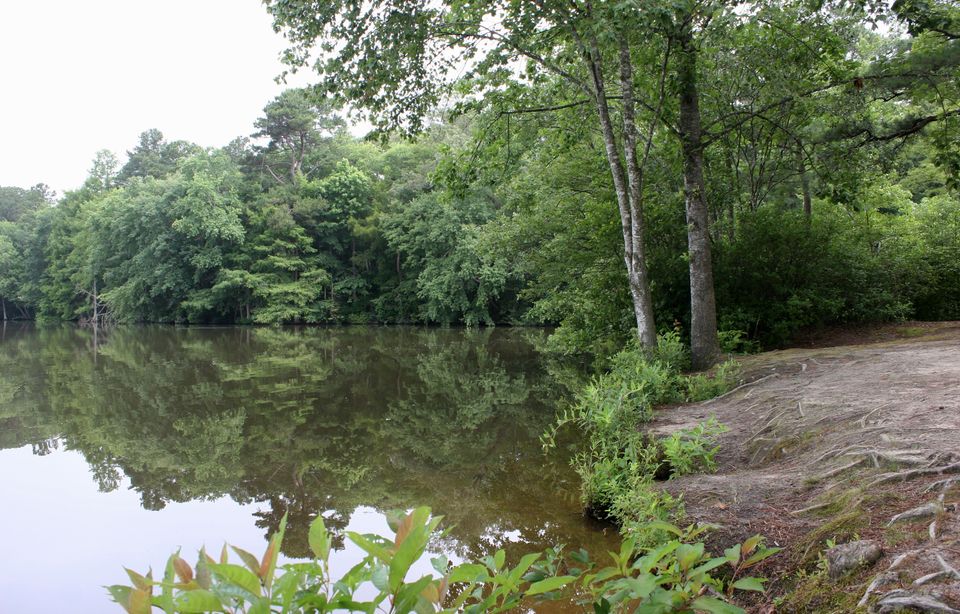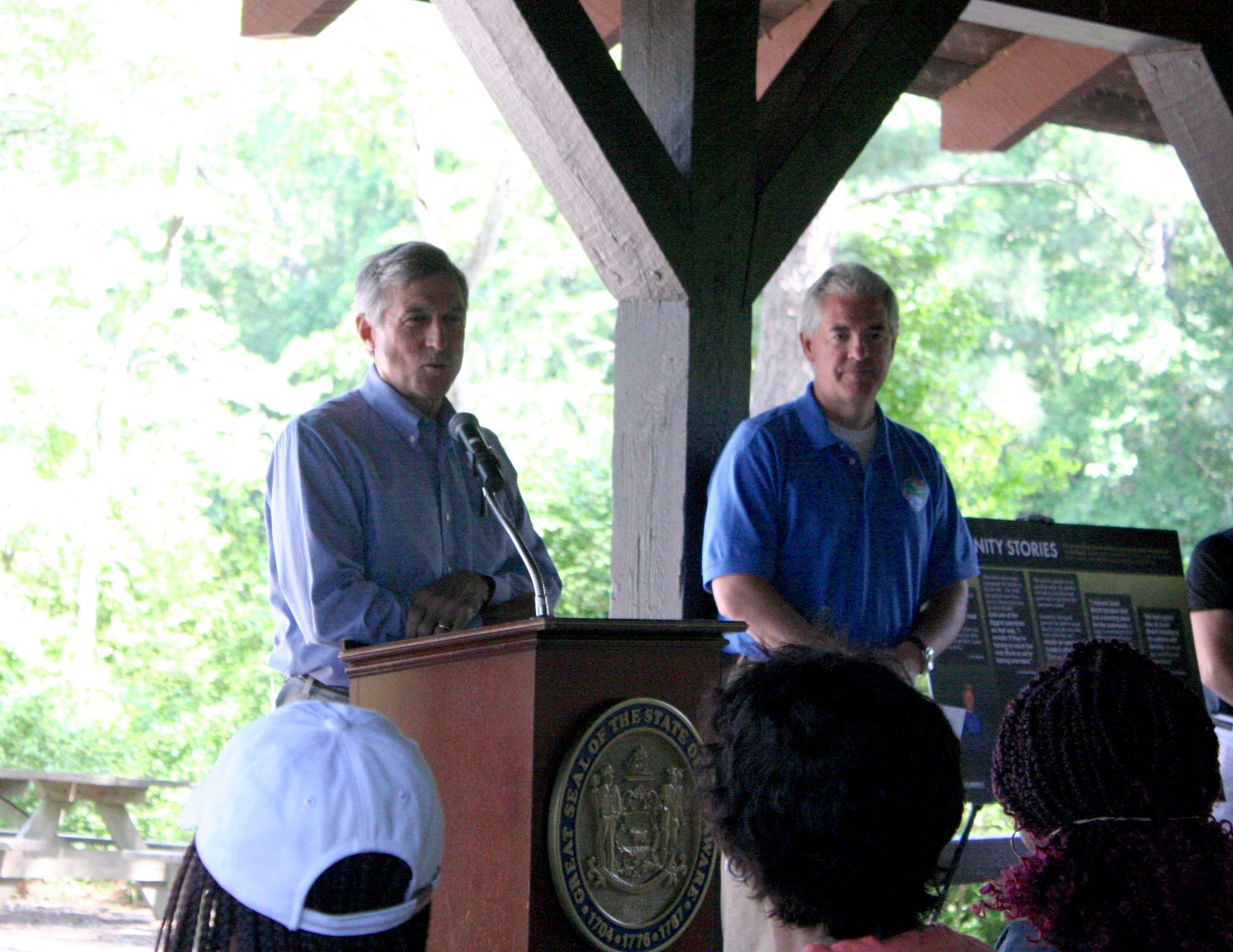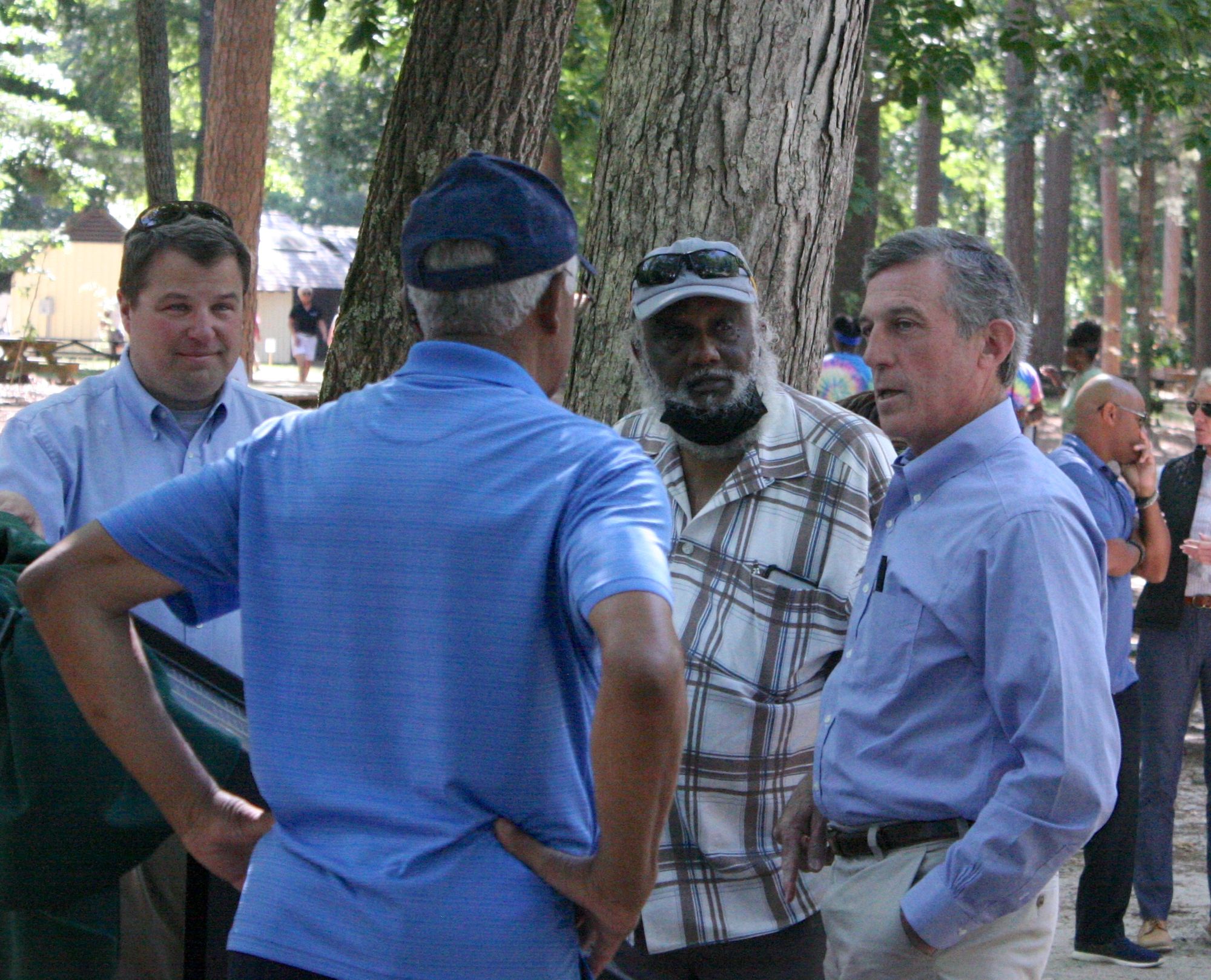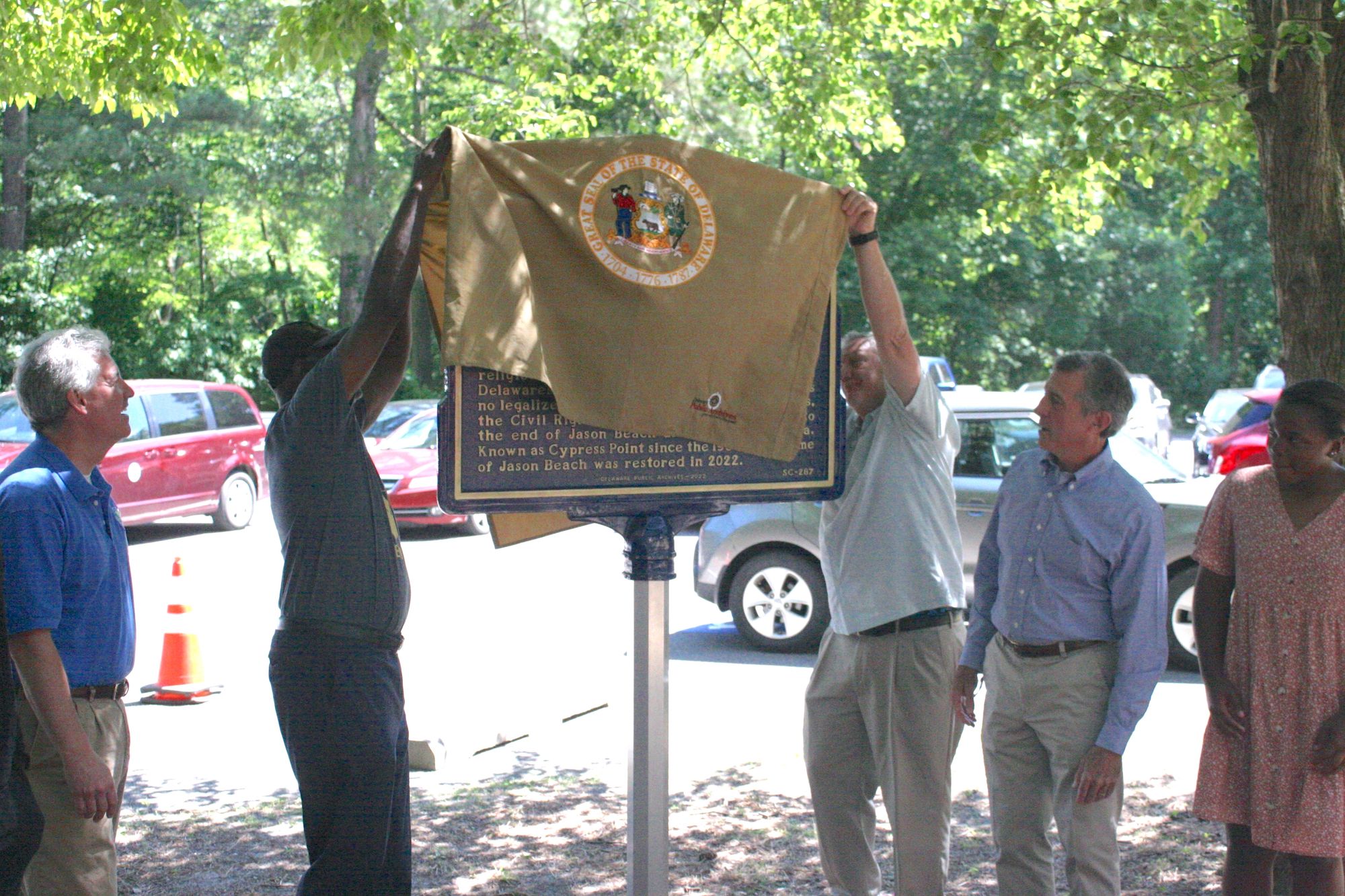A new-old beach name at Trap Pond is loaded with history

The former Cypress Point at Trap Pond State Park is a shady peninsula with picnic tables and a couple of pavilions with views of the spot’s famous cypress trees. It also has a new name that recalls a complicated history.
Last week on Juneteenth, a crowd gathered to see Gov. John Carney and other officials rededicate the point as Jason Beach, the name it bore in the 50s and 60s when it was a place for black people to swim, separate from the whites-only beach across the water.

Despite this, people who were around back then recalled happy summertime memories.
“It was like a community center, a kind of community center for the African American folk there,” Howard West said in an oral history interview with Delaware State Parks. “And we just had a wonderful time.”
But West also remembered the discrimination.
“It was a known thing, that the races were separated through schools, through going into town, traveling and all that,” West said. He also remembered that the “white” beach had far better facilities.
When Trap Pond State Park was established in 1951, two spots there named LeCate’s Point and Whaley’s Point became known as Headquarters Beach – for whites – and Jason Beach, for blacks, according to a history put together by Delaware State Parks staff.
In the sly, everyone-knows-but-doesn’t-say-it-out-loud style of the segregation era, the division wasn’t official.
The park history documents that Jason Beach was set aside “exclusively for colored visitors.” It was named after William C. Jason, a long-tenured president of Delaware State University.
Jonathan Kellam, a Laurel council member, recalled the governor being told about the history of segregation at the beach, and “he kind of gave me a look” and remarked that Delaware beaches hadn’t been segregated. “Well – on paper,” Kellam said, to knowing laughter from the crowd.
The “rules” were complicated. Out on farms, West recalled in his oral history, black and white children played together, as in many parts of the South, and white and black people ate together. “But when you went into town, you separated,” he said.
An incident in late July 1963 involving swimming lessons illustrates what happened when the unwritten rules were violated.
According to news reports at the time, children from different communities came to Trap Pond on a rotating schedule for swimming lessons (not said in so many words, but obvious from the history, is that this was a polite way of separating by skin color.) On this occasion, white children from Laurel were swimming at Headquarters Beach, and a couple of busloads of black Seaford children arrived and asked to join the lesson, the Wilmington Morning News wrote. Rather than do that, the park canceled the swimming lessons, defending its actions by claiming that it was because it wasn’t the Seaford kids’ turn for lessons. The next day, the Seaford children returned, this time just going in for a dip on the whites-only beach. Swimming lessons for the white children were again canceled.
With the spotlight on the unwritten rules, the State Park Commission clarified that there would be no segregation in state parks.
“While there may not have been any specific regulations explicitly ordering the segregation of facilities at Trap Pond, there were no regulations (until after the swimming incident) that stated that the facilities were not segregated,” the park history says. “... De facto segregation was the reality.”
The Civil Rights Act the next year was the death knell for this division of beaches, according to the park history, and although the Jason Beach name stuck around through at least 1966, eventually it was replaced by the Cypress Point name.
But as West noted, while Jason Beach had been a place of division, it had also been a place where black families gathered to connect as a community. That meant a lot of good memories were tied up in the spot, memories that live on today.
“When you went to Jason Beach, you had the chance to meet your friends, your cousins and what have you, and you met people that you’d never seen before,” he said. “...It was really a meeting place.”
Paul Selby, whose parents ran the concession stand at the beach during the segregated era, pointed out where he and friends had played a baseball-style game among the trees. He also pointed out the concrete pad that still marks where the stand stood (it was along the third base line). Others, both at the event last week and in the oral histories, recalled swimming, picnics, church baptisms, a jukebox and dancing.

Kianna Kelley, 18, from Millsboro, spoke about how her family members and others had gathered in the past at a place of belonging in Jason Beach.
“Being around others that looked like them gave a sense of home and comfort,” she said. “When looking to the left and right, nobody was seen as an outsider, as a stranger, or even as threats.”
Clarence Selby, Paul’s brother, drove down from Dover for the day. He was emphatic that his memories of the place were joyful, not painful. He remembered riding bikes and picking blueberries, and of course the bugs.
“We never worried too much about the mosquitoes, because the deer flies ate ‘em up,” he said. “Those things could bite.”
He said he’s glad the memory of the place is still alive.
“We used to play and run around out here,” Kellam said, “and we’d be having all kinds of fun swimming out here. And we used to say, ‘I wonder if the white kids are having as much fun as we’re having?’”
Clyde, another Selby brother, said it was an honor to be there for the ceremony, “as a testimony to those, like our grandparents, and our forefathers, who worked hard to see that they had entertainment and for the churches to have their religious baptism,” he said.
The historical signs unveiled Monday at the beach reflect both the ugly side of the history and the happier side.

In his remarks Monday, Jaden Burton, 18, of Millsboro, spoke about his grandmother’s fun memories of the site, but also mentioned ongoing racial injustice and how black people still have to be careful.
“My grandmom told me, she said, ‘Jaden, if you’re going to be a young man in this world, a young black man, you’ve got to observe, you’ve got to watch … the color of your skin is a weapon. Either you’re going to get yourself hurt, or you’re going to make something of yourself.”
“It’s time that we all stand up,” he said. “People are tired. My generation is definitely tired. They are tired of being affected by what has been going on (in the past).”
Juneteenth, Carney said in his remarks, is a chance to celebrate freedom, “but it’s also an important responsibility for all of us to understand the history. It’s a history of discrimination, of racism, but it’s also a great history of resilience and strength.”
“Thank God that we moved forward, and we’re moving forward,” Kellam said.
People can share memories of Jason Beach on the Delaware State Parks website.
More stories:



